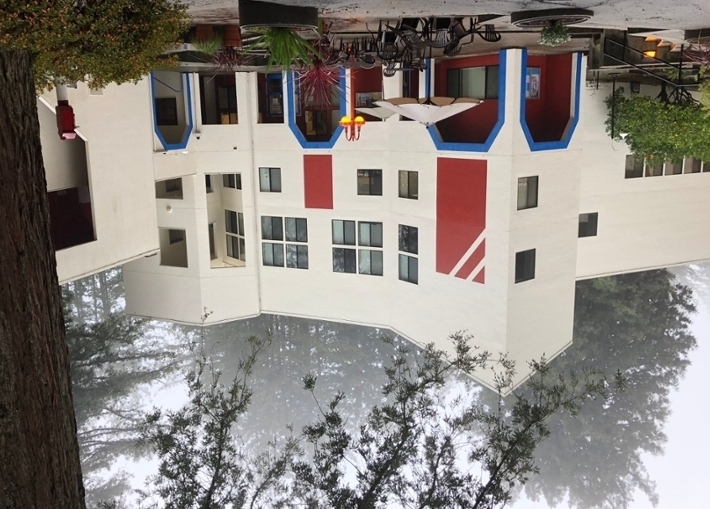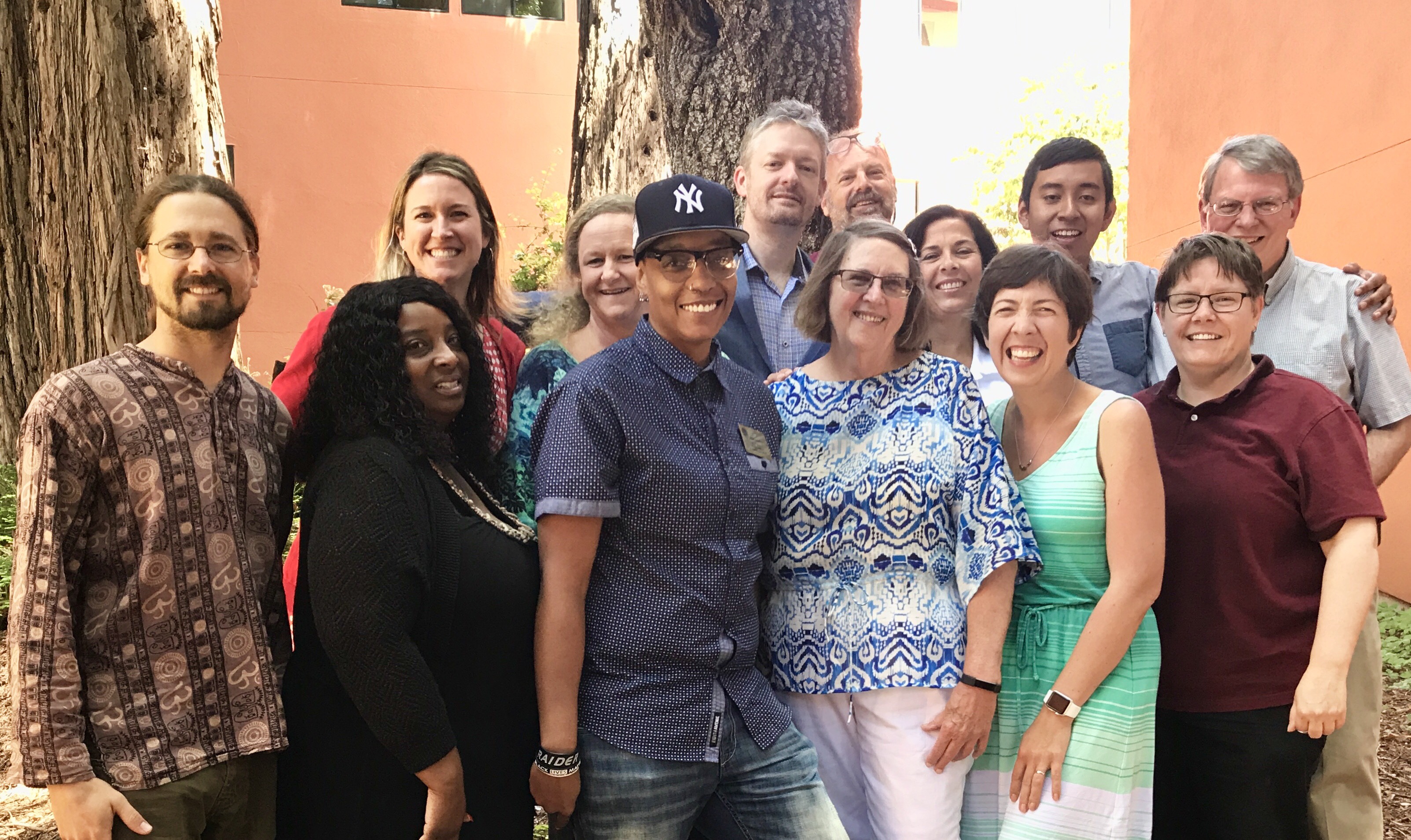The Kresge College Annual Fund
The Kresge College Alumni and Community Advisory Board invites you to participate in the life of Kresge—and join our extended family—in a brand new way: by committing to an annual gift
If you’re reading this, chances are you’ve already given to Kresge. Many of you volunteered your time and energy. You’ve made Kresge a better place through your creativity, your academic accomplishments, and your striving for higher wisdom within our learning community. Whether as an alumnus/alumna, a long-time member of our staff or faculty, or a supporter of one of our students, you’ve been an ambassador for our values, sharing your stories to the wider world about our truly unique college.
As you may have heard, Kresge College has the smallest endowment among the colleges at UC Santa Cruz. That makes us vulnerable. Each year we scramble to find one-time gifts and cost-sharing opportunities in order to avoid cutting faculty appointments and eliminating programming. So we’re asking you to consider joining us in making a stronger foundation on which Kresge can build.An annual fund is a chance for a unique bond between an institution and its network of supporters. By committing to an ongoing practice of giving, a growing body of devoted supporters can help Kresge’s faculty and staff envision Kresge’s new possibilities from year to year. You help us do the hard work of making that vision a reality. In short: you’re giving us a budget we can count on.
We’d be honored if you would join the founding membership of this fund, by signing up right now. Want to know how we’ll use your help? Scroll down to read about our three stages.

WHY GIVE TO KRESGE
For the last six years or so, in order to make the college come alive each year, Kresge has relied on just a few thousand dollars in payouts from its nascent endowment, some additional allocations for student projects, and a few other one-time funding opportunities. If you saw last year’s Annual Report, you know that we stretch these funds sometimes beyond recognition, and the results are clear. Our powerful enrichment faculty—whom students praise and identify as the front lines of their education—are offering opportunities that help lower-division students prepare for upper-division work, and help all our students keep their momentum toward a degree. Some students lead our entire campus with events like Kresge Pride; others work to bring noted teachers and writers as guests to our campus, stretching small funds to big results. Staff at Kresge regularly exceed their job descriptions to make sure Kresge is a dynamic liberal arts environment, and a crucial network of support, for students experiencing one of the most extraordinary times of their lives.
So how do we do it? Every year, Kresge’s leadership pounds the pavement, takes new risks, and commits extraordinary imagination to seek one-time collaborations with other campus units — that’s how we constantly bring new energy to Kresge.
Kresge has even bigger and better plans—but we can’t make them happen without more support from our alumni. We do much more than attract leaders and visionaries for rare and globally significant dialogue. We need additional staff support to fulfill the promise of a personalized, human approach to advising and guiding students through challenging degree programs. We need foot soldiers to bring these visions together, for our students, and in collaboration with them. Kresge’s Cooperatives have unprecedented energy and excitement this year: thanks to your donations on Giving Day, we’re helping them expand, network, and find new opportunities on the eve of Kresge’s rebuild. We’re collaborating with departments like Environmental Studies and the Writing Program to build an even stronger core and enrichment curricula. We embark on a new collaboration with faculty in Feminist Studies and Media Studies to give our core course a life beyond its first quarter. And now we’re ready for a transformation, ready to turn a corner to a new era in Kresge’s service to its students.
***
The Kresge Advisory Board aims to reach $75,000 in annual support from our donors by the Spring of 2025. With your help, we’ll accomplish this in three stages.
First stage: Be a founding member of the Kresge Annual Fund.
By October 2022, we need $12,000 in annual giving to bridge the funding gap in our powerful new academic and enrichment curriculum to support our growing relationship with the Right Livelihood Award Foundation, and to put our best foot forward in conversations with potential large-scale donors and investors on the eve of our rebuild.
[TOTAL ANNUAL BUDGET: $12,000]
Second stage: Help Kresge reach its full potential on the eve of our architectural and campus renewal
By Fall of 2024, we aim to reach $40,000 in annual giving — to expand the “stage one” generosity of our founding members, promote small class sizes, build stronger curricular “Kresge Lab” collaborations with three academic divisions, and further expand staff hours dedicated to outreach for the Kresge College Endowment.
[TOTAL (additional) ANNUAL BUDGET: $28,000]
Third stage: Give Kresge its place among the financially empowered colleges of UCSC.
By Summer of 2025—we aim for combined annual fund and endowment returns yielding $75,000 total in annual donor support.
How to get involved: Kresge currently earns just over $5,000 annually, from an endowment of $113,797, and typically brings in $3,000-8,000 per year in one-time donations. We want your leadership and support to build—by the summer of 2021—a $50,000 Annual Fund.
A record of consistent giving by alumni is also a crucial ingredient in attracting larger-scale support in higher education. Foundations, estate-scale donors, and other investors are more responsive to collaborating with places like Kresge when they know that our network of individual supporters is already fully engaged. In addition to our Annual Fund goals, Kresge aims to build a $500,000 endowment by the Summer of 2021. Combining that endowment-payout of nearly $25,000, with our annual fund and our record of attracting one-time donors, we will have reached or exceeded our goal of $75,000 in annual donor support.
Reaching these goals will require a large-scale effort—capitalizing on the indisputable strength of alumni experiences at Kresge—to help draw attention to our uniqueness as an institution. Help us build toward this goal by spreading the word about Kresge’s higher aspirations. $75,000 a year in annual giving will help us:
The Important Legacy You’re Helping to Grow
The University of California, Santa Cruz (UCSC) was created in the mid 1960s—by noted educators Drs. Clark Kerr and Dean McHenry—to provide a major public research University organized as a cluster of small, residential colleges. It was an intensification of that same ethos that lead to the founding of the sixth college at UCSC. Internationally renowned and prize-winning virologist Dr. Robert Edgar was recruited to lead that effort and expand UCSC’s educational vision. Edgar led students, faculty, and staff to form a place of learning and a community known for its compassion, its breadth of engagement with the challenges of living and learning, and its commitment to finding connections between individual contemplation and participatory democracy.
Alumni of Kresge College often say that they earned a degree, disciplinary expertise, and truly received an education. Kresge’s historic emphases on interdisciplinarity and practice-based learning are even more relevant in today’s economy compared to when Kresge’s vision took shape: innovations once attributed to lone scientists or flashes of individual inspiration are now more often the work of the long-range efforts of large, multidisciplinary research teams. Similarly, in human endeavors ranging from political activism to the entrepreneurial sphere, collaboration counts: often among collaborators who know each other more in the digital world than in the actual one. The collaborative and cooperative nature of the experience at Kresge College prepares students optimally to contribute in such a world.
In 1971 and 1972, Provost Edgar lead a course entitled “Creating Kresge College”. Now, 40+ years later, we have a chance to “re-create” Kresge College. A healthy endowment and ongoing, annual giving will maintain the health of the college programs that made our interdisciplinary community a reality, and will give our students the crucial security they need in their living and learning experience.

